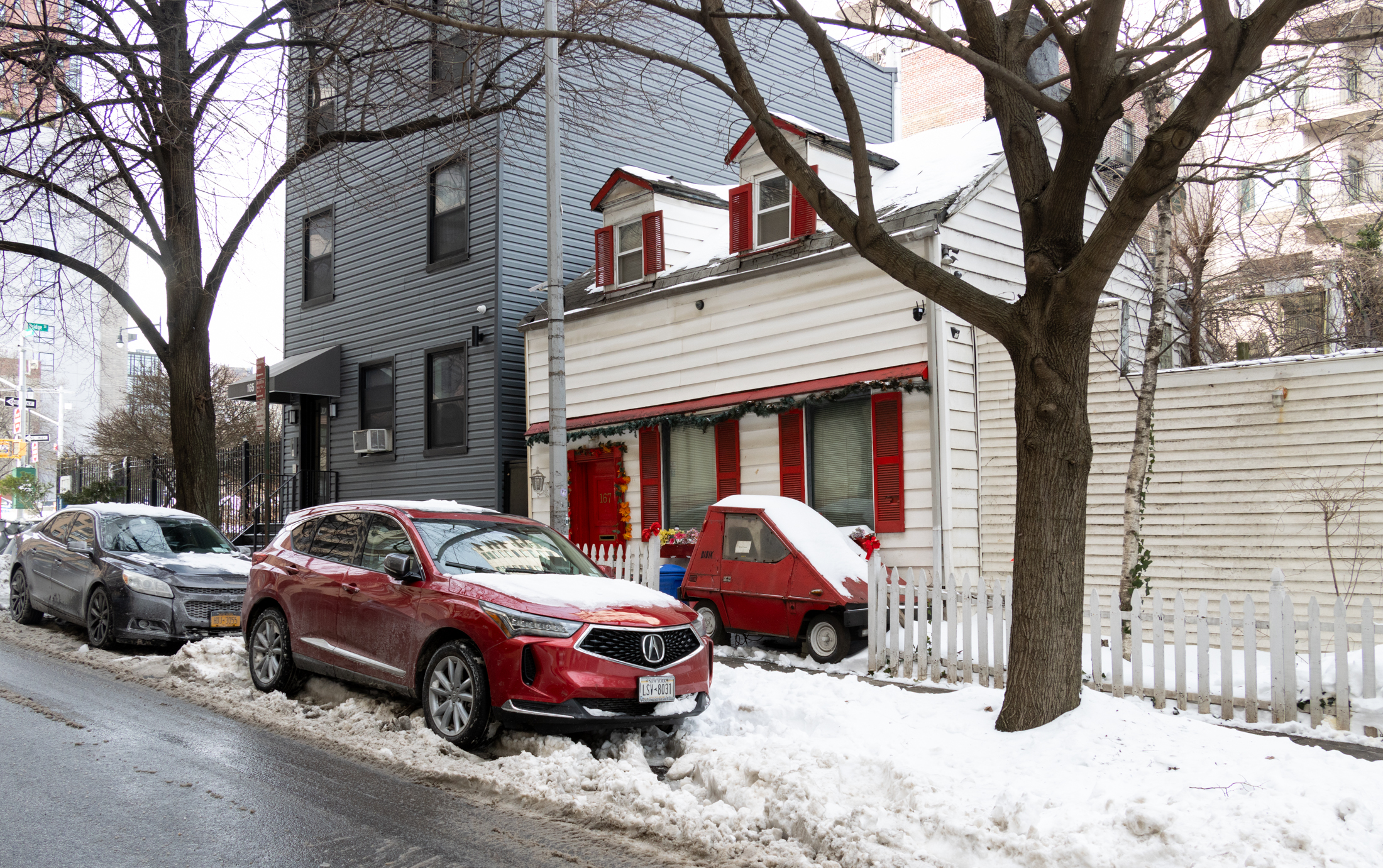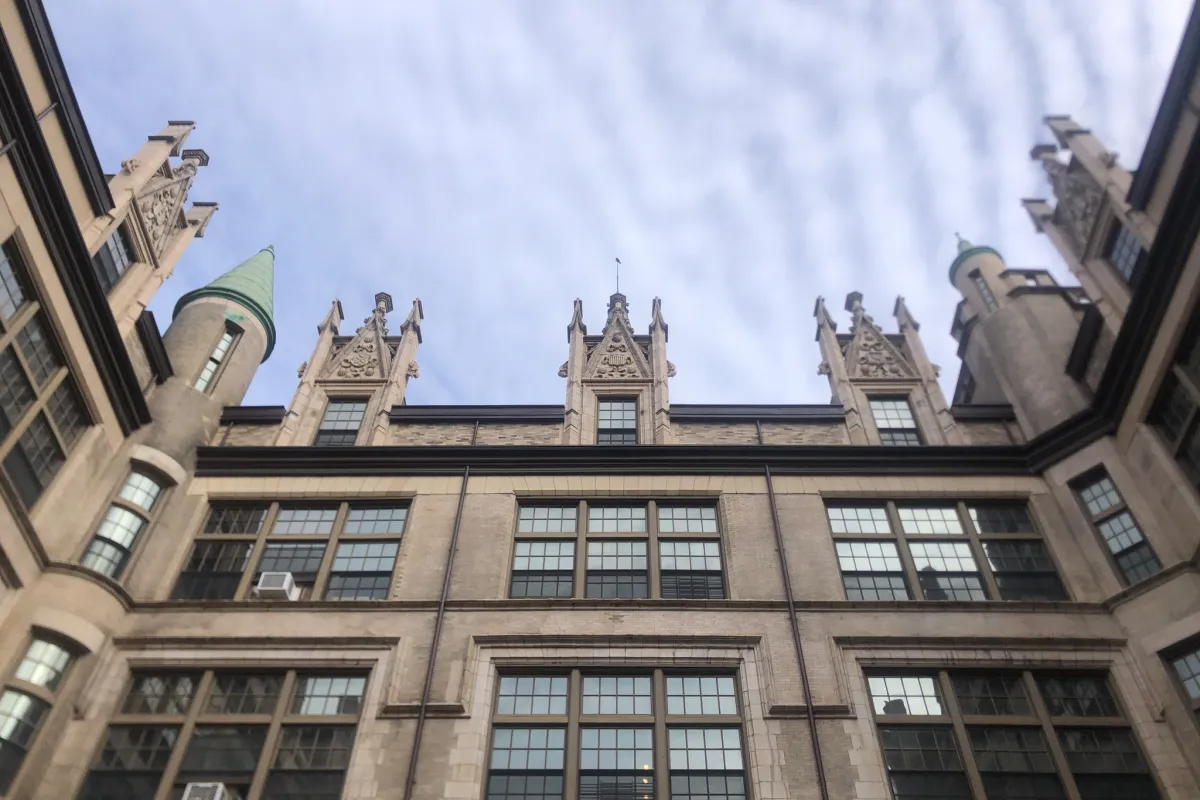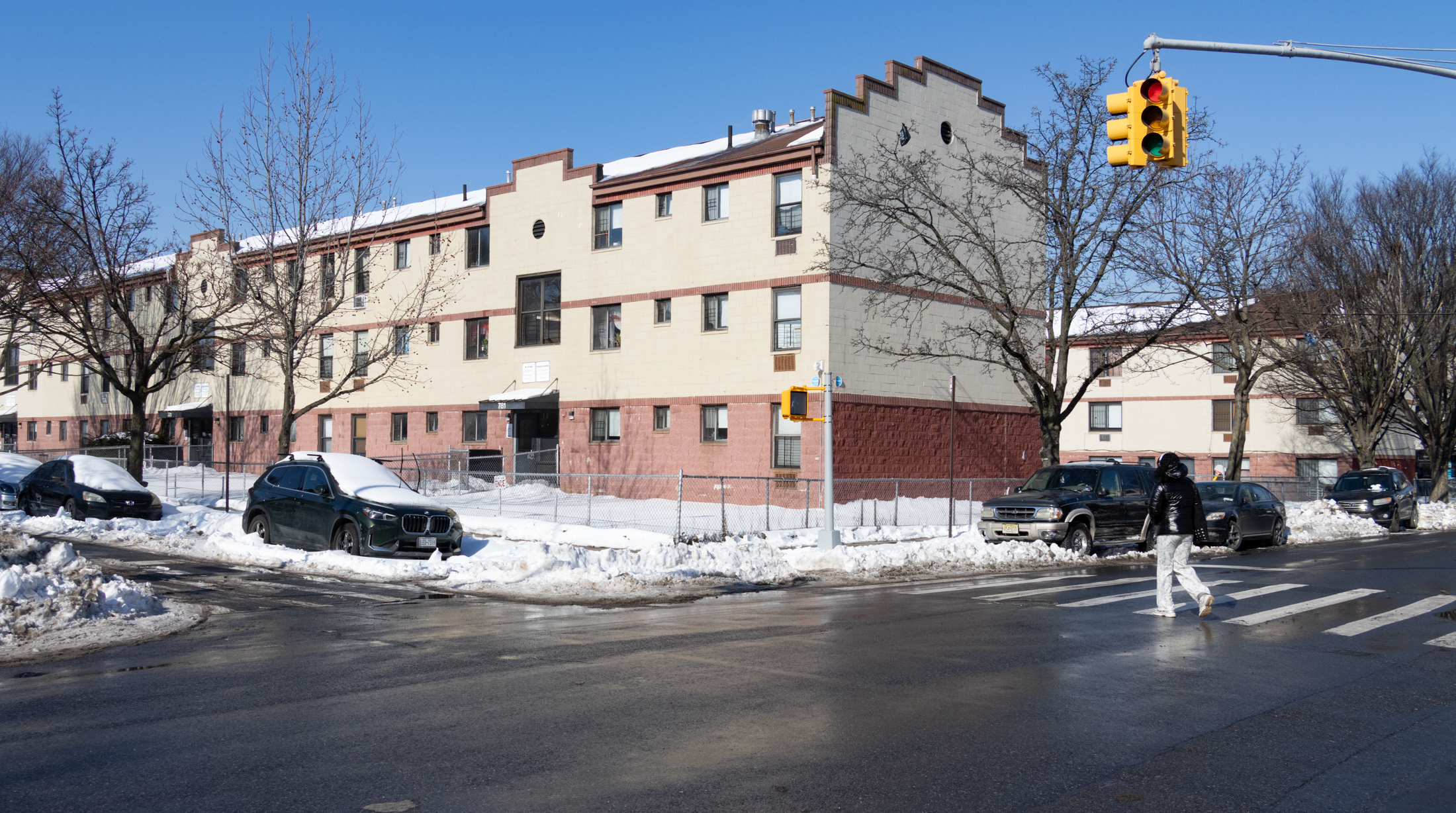Time for PS 20 Principal to Get The Boot?
In an article about how the Community Roots Charter School in Fort Greene is now harder to get into than Harvard today (play-by-play of the lottery is here), The Brooklyn Paper points to the unpopular principal at PS 20 (where a new gifted school is scheduled to open next year) as one of the reasons…

 In an article about how the Community Roots Charter School in Fort Greene is now harder to get into than Harvard today (play-by-play of the lottery is here), The Brooklyn Paper points to the unpopular principal at PS 20 (where a new gifted school is scheduled to open next year) as one of the reasons why so many parents signed up for the charter school lottery. The sentiment echoes numerous comments on the schools thread we had on Brownstoner earlier this week, where even the school’s critics and defenders seemed to agree that the principal was a big problem. A commenter on Inside Schools says something similar: “The principal is a disaster. He is authoritarian, defensive, and almost incapable of taking input seriously.” And speaking of PS 20 in a recent thread on the Times’ Local blog, one commenter said, “The DOE needs to clean house.” So the anecdotal evidence against this principal is sounding pretty compelling. Let’s see if a poll backs that up—and then maybe someone who has a connection to Joel Klein can forward the feedback. At the very least, perhaps he can be persuaded to change his ways. If you live in Fort Greene or Clinton Hill, please vote below.
In an article about how the Community Roots Charter School in Fort Greene is now harder to get into than Harvard today (play-by-play of the lottery is here), The Brooklyn Paper points to the unpopular principal at PS 20 (where a new gifted school is scheduled to open next year) as one of the reasons why so many parents signed up for the charter school lottery. The sentiment echoes numerous comments on the schools thread we had on Brownstoner earlier this week, where even the school’s critics and defenders seemed to agree that the principal was a big problem. A commenter on Inside Schools says something similar: “The principal is a disaster. He is authoritarian, defensive, and almost incapable of taking input seriously.” And speaking of PS 20 in a recent thread on the Times’ Local blog, one commenter said, “The DOE needs to clean house.” So the anecdotal evidence against this principal is sounding pretty compelling. Let’s see if a poll backs that up—and then maybe someone who has a connection to Joel Klein can forward the feedback. At the very least, perhaps he can be persuaded to change his ways. If you live in Fort Greene or Clinton Hill, please vote below.





I’m willing to bet the majority of the 59 who voted “Yes” have zero connection to the school.
If you have a child in the building you can vote Yes. If you use to have a child in the building, you can vote Yes. If you work, or have worked in the building, you can vote Yes.
Beyond that you have no business voting Yes
Denton,
Perhaps I’m being a bit harsh, but let’s take the Global History and US History Regents exams as an example. Students complete a document-based question essay for each exam. All they have to do to meet the state’s standards is take a few sentences from each document, paraphrase them, slap on an introduction (they can paraphrase the “historical context” provided on the exam) and a conclusion (repeat the introduction) and they’ve passed.
The vast majority of kids are curious and desire to learn, at least early in life. Schooling – I won’t call it education – beats those qualities out of them in favor of conforming to ridiculous modes of behavior (the bell rang? jump up and run to the next classroom even if you’re in midsentence!). Too often they are taught by people protected by absurd union rules, as you point out, who are themselves burnt out after years of dealing with the crap the DOE throws at them*. Budgetary constraints kill all the elective programs that enable kids to pursue interests that deviate from the state mandates. Want to take arts or music? Too bad. That’s where “brain dead” comes in – I blame the system more than the kids.
*I haven’t reached that point, yet, but I’m getting out before I do. Unfortunately too many teachers stay around too long because of the job security, or worse, go into administration.
I have no opinion on this school, not being in the area, but I do have opinions on NYC public schools in general, having both attended them and having put my daughter thru them. And noting that both my parents were teachers for part of their careers.
So when I see a teacher post the below, I have to ask;
“Most of the grading standards (at least in the high school Regents exams) are set so ridiculously low that non-special ed students would have to be quite brain-dead not to pass,”
And yet, if we take that at face value, why indeed aren’t they passing? According to the above they are brain-dead. Nice.
Those who don’t like the principal because he apparently does not take suggestions from every sparkly-eyed parent should consider what it is to manage an organization in a union environment where it is extremely hard to discipline or terminate an employee. Even when they consider a large percentage of their students to be brain-dead.
“but it would also be absurd to assume that PS 20 is excessively drilling on tests simply because its test scores are high”
True, bricka, but I was mostly responding to those who earlier used PS 20’s high test scores as evidence of the school’s success.
Bxgrl,
There is no systemic solution to the problems of public education. No massively bureaucratic system can possibly take on the task of universal education; education by its very nature is a highly individualized. I would recommend John Taylor Gatto’s essay “Against School”. As the title suggests, his solution is to do away with the system as we know it, and is politically impossible. We can do a few things that would move in that direction, though:
1. Eliminate the current system of tenure for teachers.
2. Create a free-market system of schools where funding is tied to students – I think former Labor Secretary Robert Reich proposed something like this, where disadvantaged students (however defined) would come to a school with more funding. Bad schools would close or have to lay off staff because of lack of funds, etc. This would create a form of accountability without the nuttiness of standardized tests.
3. Eliminate the federal Dept of Ed, which educates nobody, and outsource its programs to the states.
4. Eliminate the requirement that everyone stay in high school until age 17 or whatever it is these days. Let kids drop out and see how hard it is to survive without a diploma, then bring them back for a GED.
5. Blow up the NYC DOE bureaucracy and start over with only the truly necessary administrators.
Of course, we could do all of this, and it still wouldn’t work. There are many out there who cannot or will refuse to be educated, at least before they’re 18. The best anyone can do is watch out for their own kids and do their best to supply them with books, use lots of big words when they’re growing up to expose them to a wider vocabulary, turn off the TV, ban video games (sorry Rob!), travel some, go to museums, and to paraphrase DIBS’ earlier comment, let them be adventurous and eat dirt every now and then.
“Tests DO NOT measure the ability to think critically. They don’t measure curiosity or creativity or anything except the ability to regurgitate what the test-taker has already read. Most of the grading standards (at least in the high school Regents exams) are set so ridiculously low that non-special ed students would have to be quite brain-dead not to pass, or have absolutely no support from their teachers and parents.”
As someone who comes from a family that includes several educators, I couldn’t agree more!
Bricka,
i could be wrong but I don’t think the upper grades are less diverse because the more diverse pre-k kids eventually leave. it’s possible that the upper classes were just as homogenous when those kids were in pre-k or k. i think when those upper graders were in pre-k or k, the school was much more homogenous than it is now. so what you’re seeing in the upper grades is the less diverse pre-k classes that have gotten older. perhaps as the current pre-k class moves up, the upper grades will be just as diverse.
“I have no opinion on PS 20 and know nothing about it, but the idea that it’s a good school because it has high standardized test scores is simply absurd.”
I agree… but it would also be absurd to assume that PS 20 is excessively drilling on tests simply because its test scores are high.
It is interesting that, whatever “some commenters” have posted on other boards, no one’s actually posted much firsthand criticism of the guy here, other than a couple offhand references that he doesn’t seem friendly.
sixyears- I’ve heard the same thing from other teachers I know, including those in my family. So what’s the solution? Is there any?